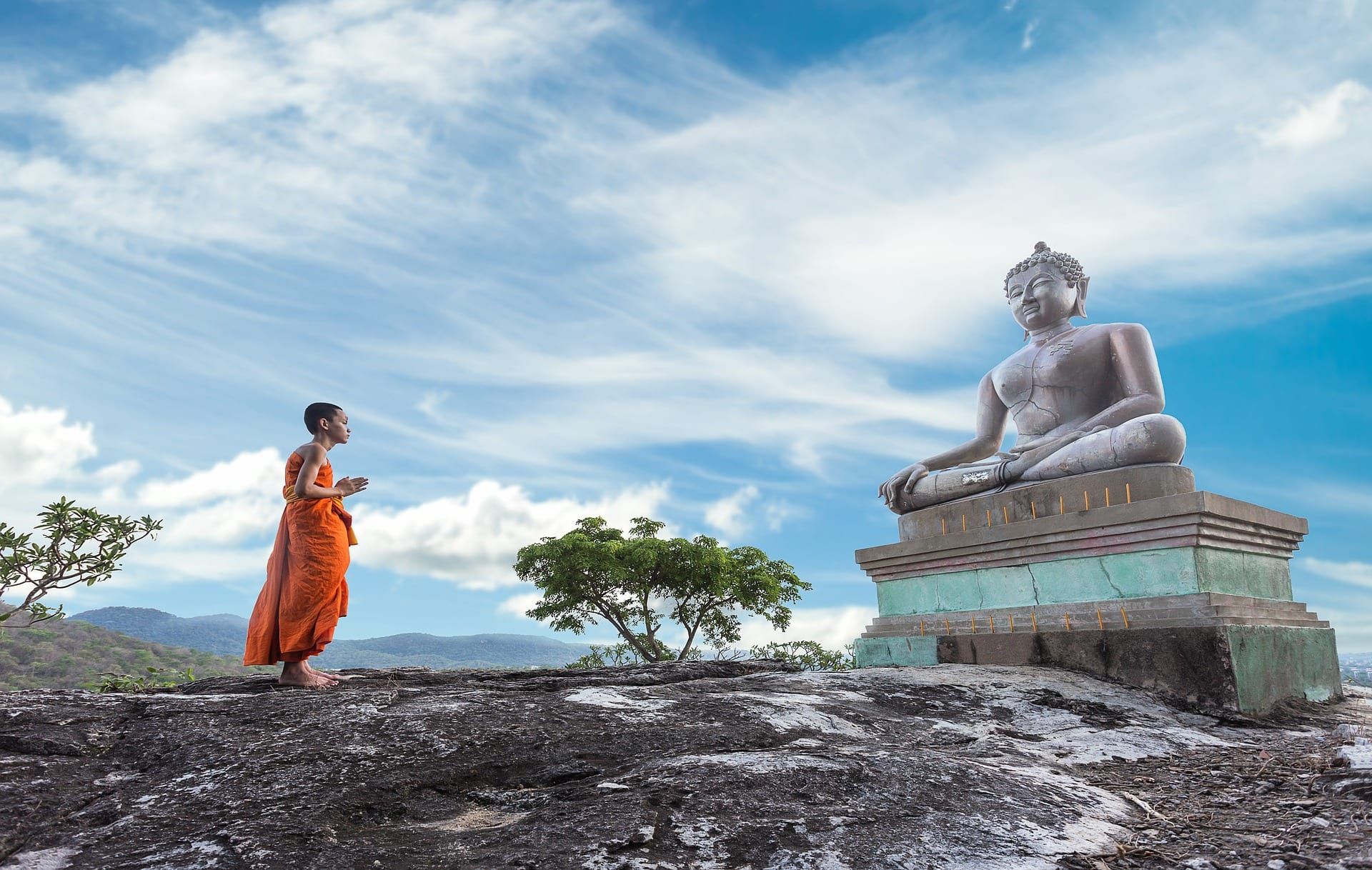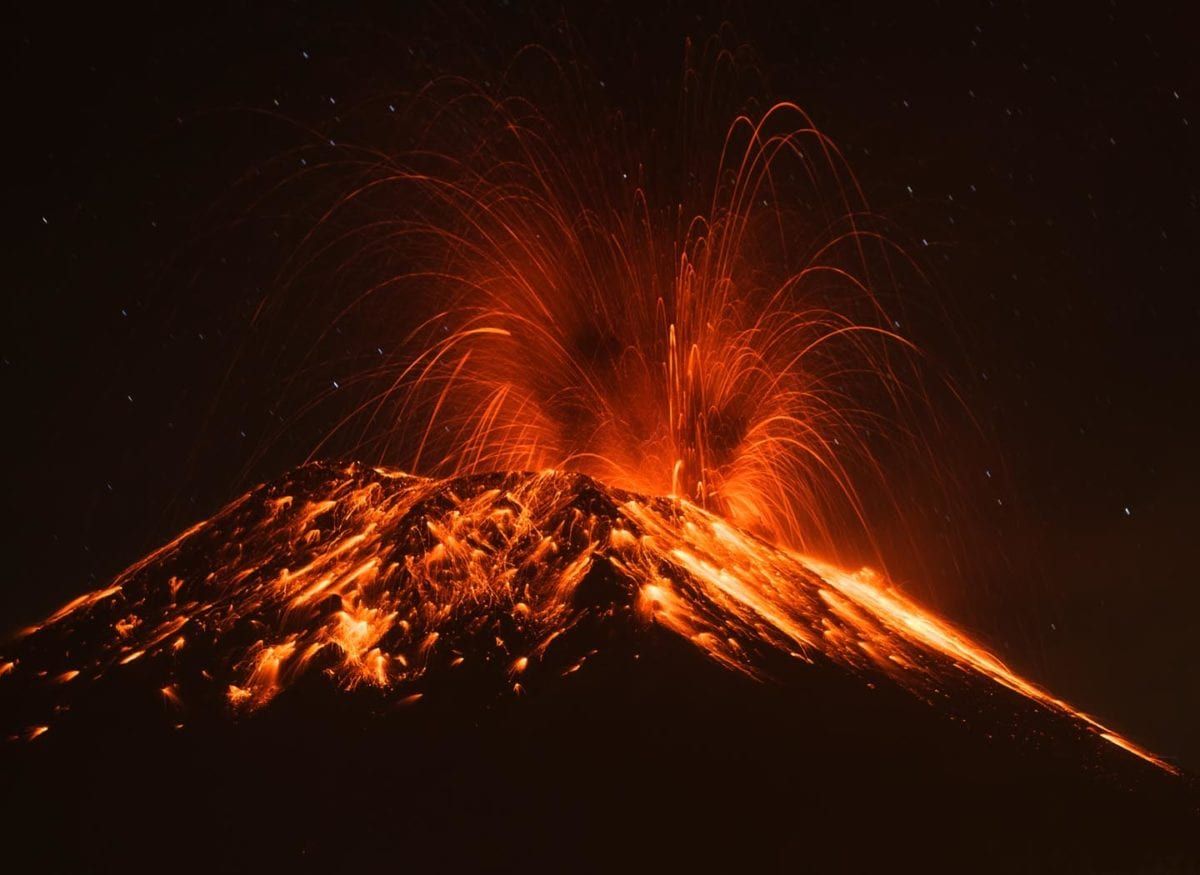A few readers wrote to me with similar questions. They wanted to know about the role of karma, what place it has in the events of mass destruction and natural calamities like war, massacres, genocide, plane crashes, earthquakes, tsunamis, hurricanes, and so forth. Let me share my point of view on this.
As I wrote earlier, I do not believe that the law of karma is your answer to everything, every occurrence. It is possible to retrofit theories, to force a square peg into a round hole and cover the gaps with some adhesive creating the illusion of a perfect fit, but it will only offer some temporary consolation, some short-lived solace.
Before I address your question, it is important to remember that it is the conditioned mind alone that asks questions, the conscious mind coated by conditioning. It rejoices in calculations, analysis, and exploration, it thrives on curiosity, it feeds on inquisitiveness. Not that anything is wrong with that, in fact, it is this very human trait that helped our race to surprise ourselves, and amaze ourselves, to rule above all the other races, whether that is good or bad, is up to individual interpretation. Consider the following:
1. The Questioning Mind
Imagine, on one side, having a mind that is endlessly asking questions, and on the other, the same mind is addressing, fielding, dodging, and answering them. That is probably how human intellect has developed over millions of years.
It is like giving clay to a child. He keeps creating different forms while the charm remains but then he molds all the figurines back into a ball and puts it aside. He may repeat the process up until he grows out of it, until he is fascinated no more and gets another toy. Similarly, your conscious mind keeps you busy, it wants to keep you fascinated and engaged. It gets tiring after a while.
Just like physical matter, mental matter can neither be created nor destroyed, it can only ever be transformed. Intellectual satisfaction from one theory today may give way to another philosophy tomorrow. Einstein put it aptly, “You can’t solve a problem with the same mind that created it.”
2. The Quiet Mind
Now, on the other side, imagine a mind that is diving into an infinite ocean of bliss, it has gone quiet. It is alert and conscious, superconscious in fact, but it is not bogging you down with endless questions about some philosophy, some abstract theory you want to plug into a tangible thesis; instead, it keeps you focused, keeps your energies channelized, escalating your awareness to an entirely new level.
Your most profound answers will emerge from a state of quietude. In a state of quiescence, you start to understand what is important to know versus what is more relevant, your answers will no longer produce more questions, and more answers and more questions and so on. It will come to a stop. You have to experience that state to know what I mean.
I can only show the path, your deliverance depends on you alone. It does not come from scavenging second-hand knowledge, it comes from the dawning of inner wisdom, it is the outcome of quietening your mind so you may see the real you. It is easier to see what lies beneath the clear water when it is still.
I encourage you to tread the path of attaining quietude to experience a constant flow of bliss, you will get all the answers, and more importantly, you will get all the right questions.
On to your question now; let me segregate it into two parts:
1. Natural Calamities
Our planet has developed its own coping mechanism, an evolving ecosystem, a sustentative cycle, it is not dependent on the human race for its sustenance, and as such, does not see us as any more important than an ant. It does not reason like us, if it did, we would be long gone.
Acts of nature are simply corrective measures it takes to maintain its existence. Whether that involves spewing fire by erupting mountains through volcanic actions, earthquakes, or mass destruction to cast off the anomalies, it does so indiscriminately. Like the dog that shakes off water after a bath, like a snake that sheds its old skin, Nature renews, realigns, and rejuvenates itself.
There is a natural order to most things. When butter is brought next to heat, it melts. As wonderful as it is, it is not an act of grace or grief. For example, there may be no media coverage of mass destruction, no sense of loss if a hurricane hits an abandoned island and no one is hurt, for, no one lived there. Explorers may seek answers, reasons, but from an ecological, geological perspective, it is highly unlikely anyone will approach it through some esoteric philosophy or religion, or through arcane laws. Predominantly because a sense of attachment is missing.
However, if the same incident takes place in a densely populated coastal area causing casualties, and mass destruction, we start searching for an answer in religion, in philosophy, in divination, and so forth. You may agree to disagree, but all religions, bar none, are mere philosophies; actionable items are called rituals. Great spiritual leaders passed on their wisdom and followers shaped it into religions.
2. Handmade Disasters
If I have my facts straight, every minute, more than two hundred fifty people die on earth. It is accepted as normal, it is the standard mortality rate, they say.
However, when hundreds die in mass destruction, such as in a plane crash, in war, or in crimes against humanity, we label this as abnormal; absolutely, it is.
Yet, just because the scale is bigger, or because the act is concentrated, it does not mean there is an all-encompassing intellectual proposition to feed a satisfactory explanation. Searching for answers in a religious theory or some cosmopolitan philosophy is just as abnormal.
Behind most wars, mass destruction, and most crimes, lies the misguided human spirit of competition, misplaced emotions, and misdirected energies. Such heinous acts remain eternally hideous, driven by greed for power, for lucre, for a position, they are commissioned to satisfy ego and lust, and they are murky acts of glorified ignorance, unmistakable signs of a barbaric mind.
Since we have an evolved intellect, how flattering, we like to give ourselves importance. We somehow feel that Nature, God, others, the world, must owe us something. We believe everything must have a meaning; our life, our death, every incident, every phase, and every occurrence has to be supported by some intelligent answer to appease the insatiable curiosity of the conditioned mind.
There may be theories, some scientific basis, cause-and-effect, and what have you, but that does not mean there is an absolute reason. Whenever anything undesirable happens, we want an answer, because most of us have been conditioned to believe that if you worship God, if you pray, nothing bad can happen; you derive your own truth from that. You may like to read – Does prayer change things? How does God answer?
So, where does that leave us in terms of praying, divine grace, and God? Do they mean anything? Of course they do. Can they help you? You bet. I will cover it in the near future, if not in the next post.
Peace.
Swami
Editorial Note
Kalachakra is a Sanskrit term that means “time cycle” or “time wheel.”
The Kalachakra tradition is founded on time (Kala) and cycles (chakra) principles. To understand the links between natural disasters, mass destruction, and karma, a good place to start is understanding our own actions and their impact on the world.
It is believed that we are living in the Kalachakra (or wheel of time) era. This is a time when bad actions produce bad results. Along our journey, we have been learning how to live good lives and how to overcome our ignorance. We have learned to act with wisdom, and as a result, our lives have become happy and peaceful. A time will come, however, where we will have to face the results of our negative actions. During this time, it is important that we do not feel discouraged by the law of karma. Instead, it is a time for us to recognize that impermanent things can bring us suffering. The only way to end suffering is to cleanse ourselves of negative karma through practicing the Dharma.
FREQUENTLY ASKED QUESTIONS:
What is the universal law of karma?
I believe in the universal law of karma and that not a single particle of karma is lost in a million years.
However, I do not believe in pansophy or absolute philosophy, and I do not believe that a single theory can provide an answer to every problem. The cosmos would not be what it is now if it was all mathematical, nature, earth, and planets.
More information on the universal law of karma may be found here. You may also watch a video below on: What is destiny vs. how much of it do we control in terms of karma

What does the law of karma say about daily life? How does karma work?
I’ll go over the four types of karma as described in Hinduism’s numerous Vedic texts.
The following taxonomy is divided into four categories. It is about making such impressions a reality.
Here are several examples:
1. Prarabdha, Karma, matured
2. Sanchita, stored, Karma
3. Agami, forthcoming, Karma
4. Vartamana, present, Karma
More information on each of the karma kinds or karma collective is here for you to read.
Help me understand the philosophy of life and what happens if I follow the law of karma?
Om Swami’s intelligent discourse on the philosophy of life and the application of the universal law of karma provides the solution to this query.
Listen to this concept of karma.
Everything, including your thoughts and emotions, is made up of energy in motion.
So, in essence, everything you do generates energy that returns to you somehow. Using karma as a set of solid life principles might encourage you to be more attentive to your thoughts, actions, and deeds before making decisions.
With that in mind, consider the karma rules to be suggestions to follow while you go about your daily life. The 12 karma laws might help you understand how karma works and produce positive karma in your life.
How does the law of karma apply to me?
If you have accrued debt, you are alone responsible for repaying it.
That is your karmic account. Assume a specific bank manager is your closest buddy, and you are in need of chips.
You cannot approach him with the argument that he has millions of dollars in his bank and hence should lend you money. Even if he wanted to, he can’t. Nature cannot give you what you have not earned, nor can it take away what is legitimately in your karmic account.
It is unbiased. What you do with your life, what you do with your actions, is totally your responsibility. That is a universal law of karma.
Also, Do you want to increase the number of good karma points in your karmic account – Learn how to enhance your positive karma points with the os.me Karma Program.
What does the law of karma or the law of attraction say about love?
If you’ve ever been to the mountains, you’ve probably seen the echo phenomena.
Whatever you say out loud gets repeated back to you several times. The more you yell, the louder it returns to you.
This is the essential premise of the law. If you yell “Me, me, me!” the cosmos responds with the same. If you say “I want money” it says the same. If you say “Give me love” it will repeat back the same.
Nature’s magnitude much outweighs yours. The more you desire, the more it desires. This is the universal law of karma and the universal language of love.
What does the law of karma say about the feeling of revenge?
I’d like to tell you something.
If vengeance is your goal, be prepared to travel faster than the speed of light down the spiritual road. This is the universal law of karma.
And there is no justification for vengeance because the entire root of this feeling is harming the other person rather than punishing them. What’s worse, you feel a sense of relaxation and joy when you believe they’ve been taught a lesson. Feeling delighted at someone else’s loss, no matter how horrible it is, does not befit a true seeker.
Understand the feeling of revenge in order to come out of it.
What does the law of karma say about karmic relationships?

The goal of this post is to show you how all karma leaves a trail.
Karma is classified into three types: physical, verbal, and mental. Every action has an aftereffect. Physical deeds leave a physical trail, but verbal and mental karma leave psychic impressions.
If you examine the path of any karma, you may be astonished to see how it may decrease but never totally disappear. You are conditioned by the residue of each karma. It is the universal law of karma that molds you.
What does Bhagavad Gita say about the law of karma?
Krishna instructs Arjuna on the Karma of three types:
First, that is sātvika, the one done in the mode of goodness,
Second, rājasī, performed in the mode of passion and
Third, tāmasī, the one done in the mode of ignorance.
Read more on the three types of karma as per Bhagavad Gita
Does Buddhism believe in karma?

Yes. Karma has a more precise significance in Buddhism, effortful or purposeful action.
Karma is set in motion by the activities and thoughts we select. As a result, the Buddhist law of karma is a cause-and-effect law.
A GOOD STORY
There were four members in a household. Everybody, Somebody, Anybody and Nobody. A bill was overdue. Everybody thought Somebody would do it. Anybody could have done it but Nobody did it.
Don't leave empty-handed, consider contributing.It's a good thing to do today.









Comments & Discussion
7 COMMENTS
Please login to read members' comments and participate in the discussion.